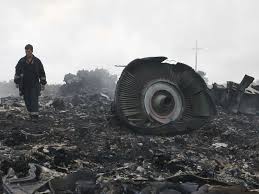 In the wake of the downing of Malaysian Airlines flight 17 over Ukraine, the ongoing Ukraine crisis reached dramatically new levels of intensity. The U.S. and EU imposed their strongest sanctions to date and for Russia, an economy largely dependent on foreign trade, things are not looking good.
In the wake of the downing of Malaysian Airlines flight 17 over Ukraine, the ongoing Ukraine crisis reached dramatically new levels of intensity. The U.S. and EU imposed their strongest sanctions to date and for Russia, an economy largely dependent on foreign trade, things are not looking good.
Sanctions had already been imposed, but the shooting-down of a civilian airliner has been a political game-changer and has rapidly pushed formerly reluctant countries like Germany and France to a position that was widely considered impossible not even a month ago.
To get a glimpse of what it is like for the legal market in Russia we spoke to Morgan Lewis Moscow Managing Partner Brian Zimbler to get his take.
In terms of legal work, are you seeing an uptick in legal work as companies scramble for advice on dealing with the sanctions?
We have seen a surge in queries about the U.S. and EU sanctions, from both international and Russian clients. This latest EU sanctions touch on several sectors – capital markets, finance, energy and defense – which has generated a lot of interest and concern. The EU regulations were published last night and became effective today (Aug. 1), so it has been very busy.
There is a lot of talk about “import substitution”. Is that a viable, or even realistic, plan?
This is not really a new trend. For the past few years, we have been advising international companies on making investments in local manufacturing, to gain better access to the Russian market in various sectors – energy, agricultural machinery and healthcare. This strategy has been very successful for some clients. Now with the sanctions and tense environment, some foreign companies may be discouraged from investing in Russia, which could mean missed opportunities.
More from Zimbler on the Russian market (first published in LegalWeek):
These are dark days for businesses – and their lawyers – who have been working for many years to develop trade and investment flows between Russia and other countries, as Morgan Lewis Moscow chief Brian Zimbler reports
The EU and U.S. have imposed tougher new sanctions against Russia, in connection with the ongoing conflict and tragic violence in Ukraine. The shocking loss of a civilian passenger jet over eastern Ukraine has rattled Western governments and prompted closer coordination among them. In response, Russian authorities remain defiant. Sadly, there seem to be few prospects for swift resolution of the crisis.
The EU and US sanctions programmes began in early March, and expanded after Russia annexed Crimea. Initially, visa bans and asset freezes were directed at political and military figures, although the lists of sanctioned persons and entities have grown over time. Other countries adopted similar programmes, including Australia, Canada, Iceland, Japan and Switzerland. These early measures did not have a substantial economic impact, however.
Now the stakes have been raised. Currently, the US “sectoral sanctions” ban US persons from involvement with new debt or new equity financing for five Russian financial institutions, and new debt for two Russian energy majors. Only debt with maturity over 90 days is affected, and certain derivative transactions are exempt. The US has also tightened licensing rules for exports to Russia.
Meanwhile, the EU has adopted its own sectoral sanctions, overcoming significant internal divisions among its 28 members. Prohibited transactions include dealing in new bonds, equity or similar financial instruments (with maturity over 90 days; loans are exempt) issued by five Russian state-owned banks or their non-EU subsidiaries; certain sales of goods or technology with military applications, or to the Russian military; and certain sales of energy-related technology or services, subject to licensing approval (with a full ban for deep water, Arctic and shale oil projects). These rules seek to balance two key goals: pressuring Russia, and minimizing impacts on EU businesses.
Russia’s response
So far, the response of the Russian authorities has been limited to visa bans for certain foreign officials, combined with strong denunciations of the EU and US sanctions. Of course, there is a risk of further actions by Russia, including steps directed at foreign companies. One recent proposal would require state-owned companies to purchase only Russian-origin software; another would ban all foreign audit, consulting and legal firms connected with “aggressor states.” Some Russian officials have acknowledged that it would not be productive to adopt such measures at present, when international ties are already deeply frayed.
These are dark days for businesses – and their lawyers – who have been working for many years to develop trade and investment flows between Russia and other countries. Some observers compare the current situation with the shooting-down of Korean Air 007 in 1983, which resulted in a tense standoff between the US and the USSR. Both occasions were connected with tragic loss of life, and international divisions that took years to repair. Circumstances today may be very different from the Cold War era, but the need for peace is equally great.
 Brian Zimbler is managing partner in the Moscow office of Morgan Lewis.
Brian Zimbler is managing partner in the Moscow office of Morgan Lewis.






